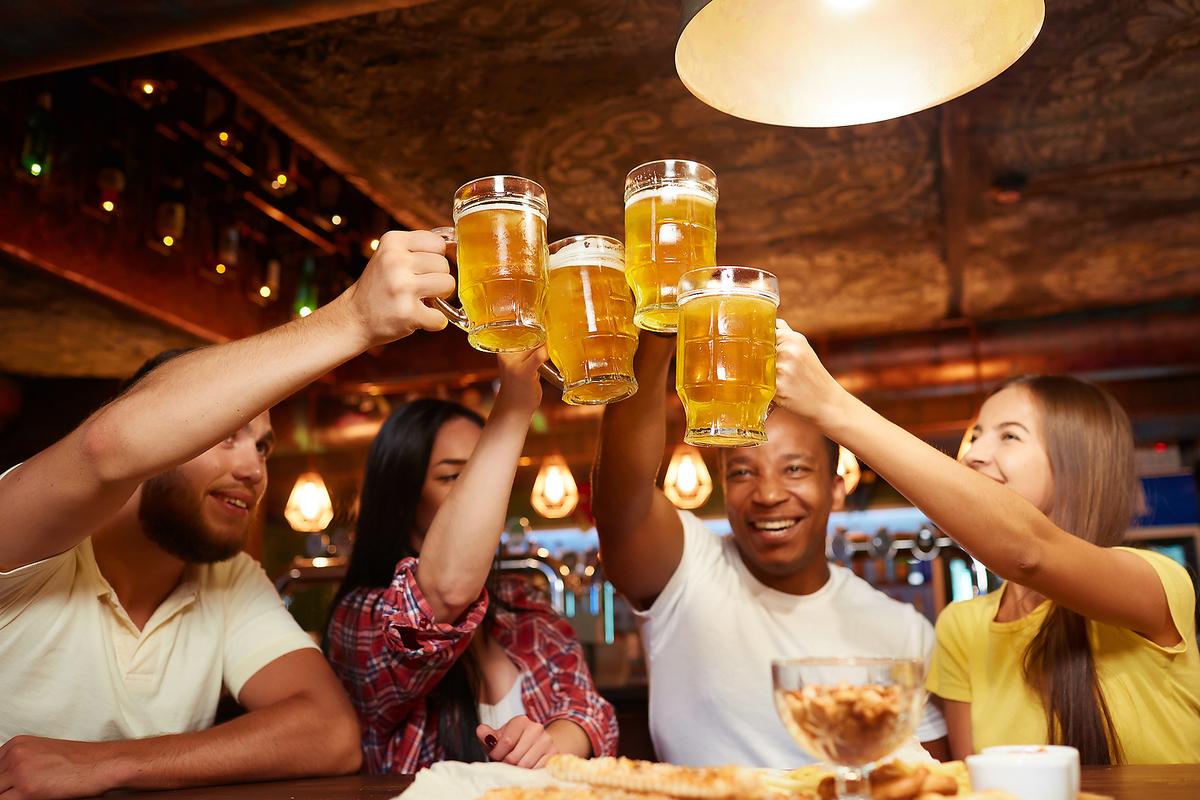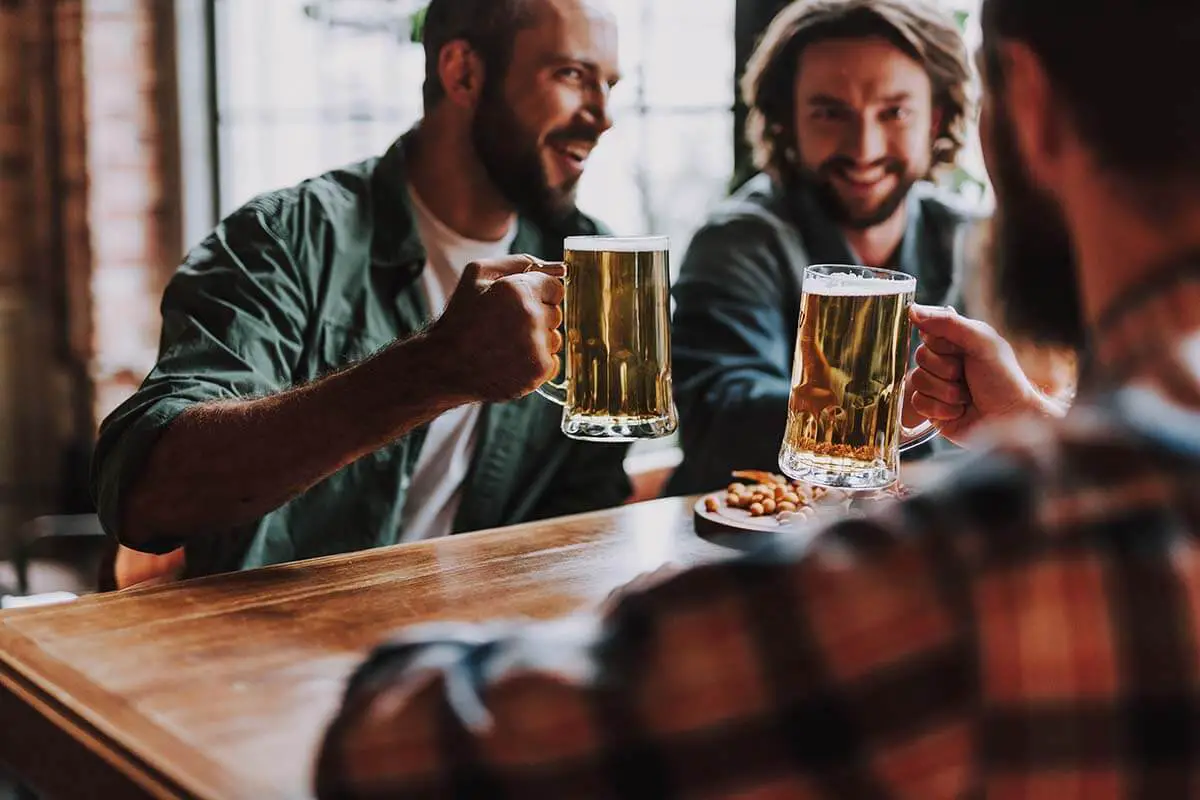From casual get-togethers to wild nights out, occasional drinkers find themselves indulging in alcohol sporadically. They might have a few drinks at Oktoberfest or enjoy a chilled beer after a tiring day at work. But how does this intermittent relationship with alcohol impact their lives? Are there any hidden risks or underlying factors at play?
Through this extensive exploration, we hope to foster a deeper understanding of the varying degrees of alcohol consumption and the effects they can have. Whether you find yourself in the realm of occasional drinking or social drinking or have concerns about your own or someone else’s drinking habits, this blog post aims to inform, provoke thought, and perhaps even inspire positive change.
So, join us on this enlightening journey as we dissect the world of occasional drinkers, social drinkers, and individuals facing drinking problems!
Table of Contents
ToggleUnderstanding Occasional Drinkers
Occasional drinkers are those who don’t quite fit into the ‘regular drinker’ category. They don’t find solace in a glass of wine every day or hit the bars every weekend. Instead, they’re more like the selective connoisseurs of alcohol.
So, what motivates these occasional drinkers to take a sip? Well, it’s often about celebrating life’s memorable moments. From toasting at weddings to raising a glass on birthdays, occasional drinkers embrace alcohol as a way to mark special occasions.
Unraveling the World of Social Drinkers
Welcome to the world of social drinkers – a vibrant realm where people come together to savor the joy of each other’s company while indulging in their favorite libations. Social drinking has intertwined with the essence of our social existence, from cherished moments with dear friends to joyous celebrations and special occasions.
Defining what makes someone a social drinker isn’t as simple as counting drinks, and the CDC has helped us by providing some general guidelines. Like one drink per day for women and up to two drinks per day for men as moderate drinking.
On the flip side, binge drinking is when a man consumes five or more drinks or a woman has four or more drinks in a two-hour timeframe within a month. If you But it’s not just about numbers. Various factors come into play, such as how quickly drinks are consumed, body weight, tolerance, and unique individual differences making it challenging to pin down exactly what qualifies as ‘casual.’
The Harsh Reality of Problem Drinking
Problem drinkers may not be diagnosed with an alcohol use disorder (AUD), but their relationship with alcohol still has detrimental effects.
Problem drinking, also known as ‘alcohol abuse’ or ‘alcohol misuse,’ refers to a pattern of drinking that leads to negative consequences. It goes beyond simply enjoying a few drinks and crosses into territory where it starts causing problems in various aspects of life. These problems can include strained relationships, conflicts, legal issues, and impaired judgment.
For problem drinkers, alcohol may become a crutch or a way to escape from the challenges they face. It can temporarily provide relief or a sense of control, but ultimately it can lead to further complications and exacerbate existing difficulties.
Transitioning from Occasional to Social Drinking: A Slippery Slope

Occasional drinking can sometimes evolve into social drinking, crossing a line that blurs the boundaries between responsible alcohol consumption and potentially problematic habits. Let’s find out more about how this transition can occur:
The Frequency Factor
As life happens, the occasions for drinking can start to pop up more frequently. What used to be limited to special celebrations or milestones may expand to include casual gatherings, Friday nights, or even ‘wine Wednesdays.’ Slowly, those occasional drinks become more regular, and before you know it, you’re moving from occasional to social drinking.
Blending In
It’s no secret that humans are social creatures. Being part of a social circle where drinking is the norm can influence our habits. When we see our friends or coworkers regularly engaging in social drinking, it becomes easier to see it as normal behavior. We adopt the habits of those around us, making it feel like a natural progression.
Escaping Emotions
Life can be tough, and sometimes we turn to alcohol as a way to cope with stress or unwind after a long day. Occasional drinking may start to morph into social drinking when we find ourselves relying on alcohol more frequently to numb our emotions or temporarily escape from life’s challenges. It becomes an easy solution, a quick fix that seems harmless at first.
Peer Pressure Pitfalls
We’ve all experienced the subtle influence of peer pressure. When we’re surrounded by friends or acquaintances who regularly partake in social drinking, it’s hard not to get caught up in the vibe. We don’t want to feel alienated from the gathering, so we join in. The boundaries between occasional and social drinking blur as we try to fit in and be part of the group.
5 Signs Your ‘Social Drinking’ May Be Problem Drinking

Let’s take a closer look at signs that indicate your ‘social drinking’ might be crossing the line into problem drinking. It’s essential to listen to our instincts and pay attention to these warning signs that our relationship with alcohol may be becoming unhealthy.
Standing Out with Your Alcohol Consumption
Do you find yourself consistently drinking more alcohol than your friends or family during social gatherings? If you often find yourself proudly proclaiming to be the reigning champion of the drinking game at a party, it may be a red flag that your relationship with alcohol is veering into dangerous territory.
Solo Drinks and Hidden Bottles
Secretly drinking by yourself and hiding the extent of your alcohol consumption from loved ones is a telltale sign that something may be amiss. If you’re stashing away empty bottles or sneakily sipping alcohol alone, it’s time to pause and reflect on your relationship with alcohol.
Birds of a Feather
Take a moment to reflect on the company you keep. Are you primarily socializing with heavy drinkers or binge drinkers? Surrounding ourselves with individuals who engage in excessive drinking habits can normalize such behavior and increase the risk of developing an alcohol use disorder.
Drunk Priority
When alcohol starts taking precedence over your work commitments and family obligations, it’s a red flag. If you consistently choose to drink over fulfilling your responsibilities or find yourself neglecting important relationships, it’s time to reevaluate your priorities.
Dependence and Withdrawal
Do you feel that alcohol is almost necessary for you to function well? Experiencing physical withdrawal symptoms like blackouts, seizures, or tremors after a short period without alcohol is a clear sign that your body has become dependent on it.
Remember, noticing these signs doesn’t mean you have an alcohol use disorder, but they serve as important wake-up calls to reassess your drinking habits.
Conclusion
As we wrap up our exploration of occasional drinking, social drinking, and problem drinking, it becomes clear that finding a healthy balance is key. It’s not about categorizing ourselves or labeling others; instead, it’s about understanding the nuances and making conscious choices.
Remember, each of us holds the power to steer our relationship with alcohol in a positive direction. It’s about finding balance, savoring life’s moments, and leading a healthy life. So, let’s raise a glass as a toast to mindful choices and embark on a journey of responsible drinking together.
Cheers to a life filled with balance, well-being, and meaningful connections!

I am a passionate beer connoisseur with a deep appreciation for the art and science of brewing. With years of experience tasting and evaluating various beers, I love to share my opinions and insights with others and I am always eager to engage in lively discussions about my favorite beverage.
















